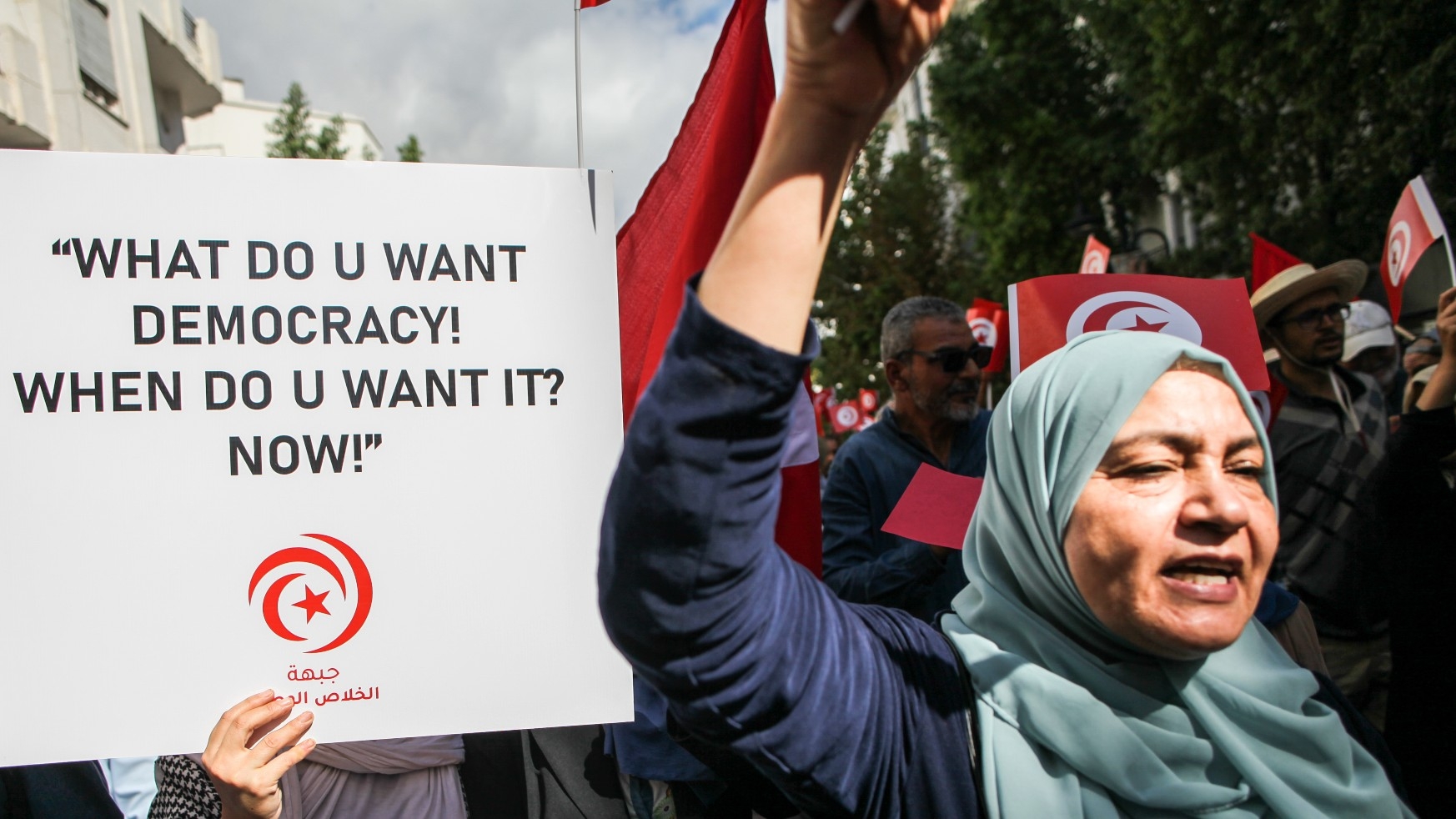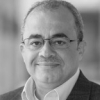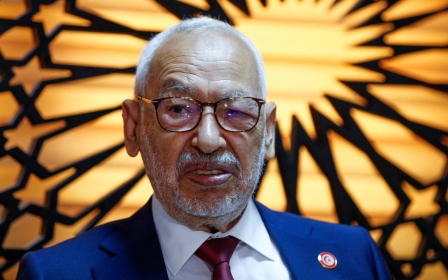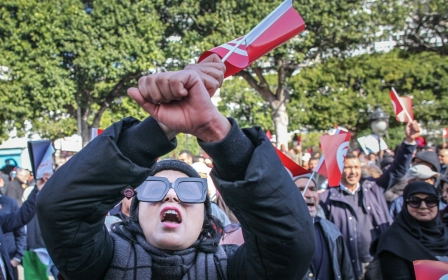Tunisia: Why Muslim democrats should not despair over crackdown

Tunisian authorities this month arrested Rached Ghannouchi, the prominent opposition leader and an inspiring Muslim democrat.
The octogenarian leader of the biggest Islamic party in Tunisia, who has been a voice of moderation in the country, has been investigated for inciting violence and other dubious accusations. So far, this is nothing new or surprising in the saga of Middle Eastern authoritarianism and western complacency.
There is no point in writing about what the West, and particularly the United States, should do to promote democracy and protect human rights. They couldn’t care less, as their long history of support for repressive and autocratic regimes tells us over and over again. Historically, in fact, they have been more of an impediment to democracy.
Rather, there are lessons that can be learned from this phase in the ongoing process of transformation in the Middle East.
The post-independence Middle Eastern state is antithetical to democracy and the respect for human rights. It needs to be reconstructed and its instruments of authoritarianism dismantled. This was precisely the outcry of millions of young people during the popular Arab uprisings of 2011, as they shouted slogans such as “The people want to change the system” and “Bread, freedom, and human dignity”.
New MEE newsletter: Jerusalem Dispatch
Sign up to get the latest insights and analysis on Israel-Palestine, alongside Turkey Unpacked and other MEE newsletters
The latter motto could also be read as a call for social justice, democracy and human rights. These demands are still alive and will be carried to the next round of the regional change process.
Reverting to authoritarianism is not a natural, inevitable outcome in line with “Middle Eastern” exceptionalism. The counter-revolution that worked against the popular aspirations of most of the peoples of the region, as manifested in the 2011 uprisings, was a deliberate process involving foreign, regional and domestic actors who felt more comfortable to continue associating with the devils they knew.
The pushback against change began with states refusing to call a coup a coup; sending billions of dollars of foreign aid and loans to the military regime in Egypt; withholding much-needed aid from Tunisia during critical phases in its democratic transition; and refraining from taking a decisive stance against Syrian President Bashar Al-Assad, even as he dropped thousands of barrel bombs on his own people.
Untenable situation
Post-independence states in the Arab world have become bankrupt, weak and uncreative. Many have already been described as failed or failing states because of societal repression, civil wars, deteriorating economic conditions, or simply inept governance. This list includes Sudan, Libya, Syria, Iraq, Egypt, Lebanon and Yemen.
Millions of people who live in these states, ordinary civilians, need effective strategies for economic development, a working political system, and good governance. The current situation is untenable, and the need for a new formula could not be more urgent.
Failed and post-civil-war states need to be reconstructed and social peace restored. They need a formula that can achieve national integration and bring together different social, political and ethnic communities. This formula is democracy, not neo-authoritarianism; democracy as a process by which diverse entities can deliberate and resolve their conflicts peacefully.
The repression of Muslim democrats vindicates the radical Muslims who do not believe in the democratic process as an avenue for change
Engineering artificial democracies, constructing confessional and sectarian systems, or restoring neo-authoritarianism might be temporary fixes, but eventually they are bound to fail. They will not lead to inclusion or to a strong society.
Suppressing moderates such as Ghannouchi or the Muslim Brotherhood in Egypt creates a vacuum that will inevitably be filled by radicals or security measures to control society. This is exactly the cycle the region has been witnessing in recent decades in the relationship between repressive regimes and moderate Islam - repression leading to radicalisation.
When Ghannouchi visited Washington in 2014, he was described as the “Arab Mandela” for his genuine commitment to democracy. He was indeed instrumental to the success of Tunisia’s democratic transition after the 2011 overthrow of the Ben Ali regime.
He and his party Ennahda have made tangible concessions to ensure the success of the democratic process. The repression of Muslim democrats vindicates the radical Muslims who do not believe in the democratic process as a safe or useful avenue for change.
Muslim democrats should not be discouraged or fall into despair over this blowback. The root causes that led to the popular upheavals and the overthrow of autocratic regimes are still brewing. The region will need democracy advocates, such as Ghannouchi, from both Islamic and liberal streams, to chart the process.
As Ghannouchi once said, the Tunisian experience must succeed, because it provides a democratic spring with space for all.
The views expressed in this article belong to the author and do not necessarily reflect the editorial policy of Middle East Eye.
Middle East Eye delivers independent and unrivalled coverage and analysis of the Middle East, North Africa and beyond. To learn more about republishing this content and the associated fees, please fill out this form. More about MEE can be found here.





